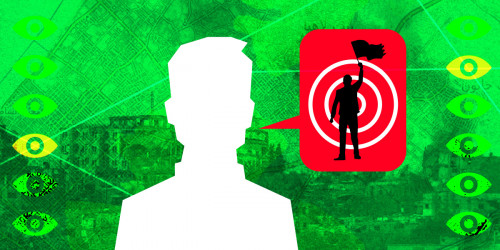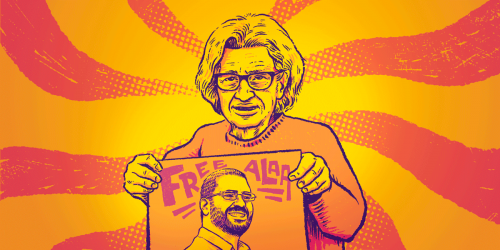On Oct. 23 and 24, EFF will join privacy commissioners from throughout the world in Punta del Este, Uruguay, for the 34th International Conference of Data Protection and Privacy Commissioners, the premier global event on privacy issues. A tagline on the event website, “Privacy and Technology: The Debate Is Now,” could not be more apt.
This international meeting brings together commissioners working on privacy regulation and personal data protection with experts, nongovernmental organizations, and academics focused on these crucial issues. The conference is held to foster exchanges and promote knowledge sharing. Discussions will cover data protection and e-Government, the role of technology in open government, issues surrounding geo-location, security of health records, online behavioral advertising, biometrics and more.
Speakers will include leading academics, representatives from civil society organizations, representatives from tech companies, and government officials who work on issues concerning privacy and technology.
With increased collaboration between governments and corporate vendors of surveillance technologies, widespread use of CCTV cameras and biometric databases, and national legislative proposals under consideration to grant law enforcement agencies broader access to online communications, the time is surely ripe for an international check-in on policies designed to uphold the right to privacy around the world.
Just before the convention, The Public Voice Coalition – a group of civil society organizations that includes EFF – will host a parallel conference focused on privacy advocacy, titled The Public Voice: Privacy Rights Are a Global Challenge.
When this event was held in 2009, experts from more than 100 nongovernmental organizations representing 40 countries collectively drafted the Madrid Privacy Declaration, an expansive statement reaffirming privacy as a fundamental human right and calling upon countries to bolster national and international frameworks on privacy protection.
Have individuals been given stronger safeguards against the collection and use of their personal information since the recommendations and objectives of the Madrid Privacy Declaration were issued?
On the one hand, one only needs to scan the headlines to find horror stories – remember the LinkedIn data breach? Target’s use of behavioral advertising to figure out a teen was pregnant before her parents did, which became obvious when she began receiving ads for maternity needs? Or the FBI's growing use of facial recongition technology? Anecdotes like these illustrate that there is much work to be done before privacy is adequately safeguarded, particularly in the United States.
At the same time, there have been developments on privacy standards in the U.S. and at the international level. Two separate policy instruments created by intergovernmental organizations in the early 1980s, the Organisation for Economic Cooperation and Development (OECD) privacy guidelines and the Council of Europe Convention 108 privacy treaty, respectively, have come up for review. Civil society organizations such as EFF are weighing in on how these standards can be strengthened to better protect privacy, free speech and human rights, but it's still too soon to say how the policy discussions will play out.
Data protection agencies have also taken steps to enhance privacy in the commercial realm. For example, Facebook recently disabled its automatic facial recognition software in Europe following an investigation by the Irish Data Protection Commission. When it comes to governmental surveillance practices and law enforcement use of technology to intercept communications or gather personal information, there remains a critical need for strong due process standards and legal safeguards for government access to citizen's data.
Here in the United States, both the Federal Trade Commission and the Obama Administration (in conjunction with the Department of Commerce) have issued reports calling for stronger consumer privacy protections at the national level. A proposed consumer privacy framework known as the Consumer Privacy Bill of Rights, outlined in an Obama Administration white paper, is based upon the widely accepted Fair Information Practices – a set of privacy principles that are explicitly endorsed and supported by the Madrid Privacy Declaration. As EFF has noted before, the success of this initiative will ultimately depend upon how it is implemented and whether it is ultimately committed to formal legislation.
EFF looks forward to participating in this global meeting with prominent advocates on these issues, and we’re committed in the long run to enhancing privacy standards in the U.S. and around the world.









